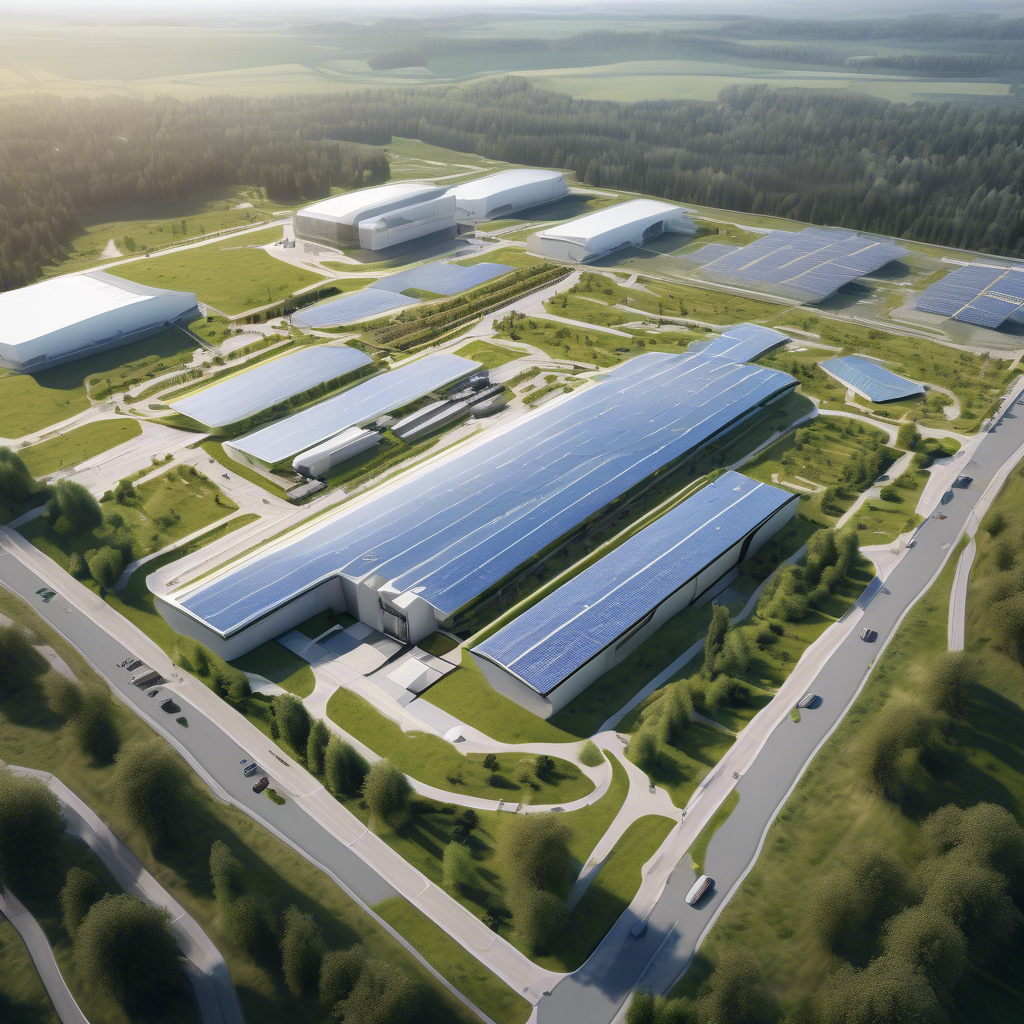EU Receives 76 Proposals for AI Gigafactories in Major €20 Billion Initiative

Brief news summary
The European Union’s AI gigafactory initiative has generated strong interest, with 76 companies proposing facilities across 16 member states at 60 sites, exceeding expectations. Backed by a €20 billion investment from the European Commission, the project aims to bridge the technology gap with AI leaders like the US and China by creating major hubs for AI computing and data storage. Each gigafactory plans to produce around 100,000 advanced AI chips focused on machine learning and data processing, targeting a total output of at least 3 million next-generation processors. Proposals come from leading tech firms, telecom operators, and financial investors. A formal call for proposals will be issued by year-end, followed by competitive selection. This initiative is vital for the EU to achieve technological sovereignty, reduce dependency on external suppliers, and enhance supply chain resilience. Beyond fostering innovation, it will generate thousands of skilled jobs and increase research funding, strengthening Europe’s global AI leadership. Success depends on collaboration among public institutions, private companies, and research organizations, marking a key step in Europe’s AI competitiveness and leadership.The European Union has seen a remarkable surge of interest in its ambitious plan to establish AI gigafactories, reflecting Europe’s growing dedication to advancing artificial intelligence technology. So far, 76 companies have submitted detailed proposals to build these cutting-edge facilities across 16 member states, covering 60 separate sites. This strong response has surpassed initial expectations and highlights the dynamic momentum and enthusiasm within the European innovation ecosystem for AI development. Driven by the European Commission’s strategic vision, the initiative was sparked by a significant €20 billion investment (about $23 billion USD) announced just four months ago. This funding is part of a broader effort to close the technological gap between Europe and leading AI powers, notably the United States and China, which have made major progress in both hardware and software. The proposed AI gigafactories are intended to serve as large-scale centers dedicated to AI computing and data storage, each outfitted with state-of-the-art infrastructure, including roughly 100, 000 advanced AI chips essential for running complex machine learning algorithms and supporting growing data-intensive applications. Applicants represent a diverse group from within and beyond the European Union, including major technology companies, telecom providers, and financial investors, signaling a collaborative approach across sectors. Collectively, they plan to acquire at least 3 million next-generation AI processors, underscoring the scale and ambition behind this endeavor. An official call for proposals to establish these gigafactories is slated for release by year-end.
Interested parties will then have the chance to formally compete in what is expected to be a highly competitive selection process, given the strong interest so far. This initiative forms a crucial part of the EU’s broader strategy to achieve technological sovereignty and foster AI innovation. By developing manufacturing capabilities for AI hardware within the region, Europe aims to reduce reliance on external suppliers and increase resilience amid global supply chain challenges. Furthermore, the gigafactories are projected to significantly impact the European economy by potentially creating thousands of high-skilled jobs and boosting research and development investment. This effort will also strengthen Europe’s role in the global AI arena, keeping the continent at the forefront of technological innovation. Success will depend on effective cooperation among public institutions, private firms, and research organizations. This collaborative model is expected to accelerate AI computing advancements, facilitate knowledge exchange, and promote best practices throughout industry sectors. In summary, the enthusiastic response to the EU’s AI gigafactory initiative marks a key milestone in Europe’s pursuit of technological progress and competitiveness. Backed by substantial funding and broad stakeholder involvement, Europe is well positioned to achieve significant advances in AI innovation, enhancing its global standing.
Watch video about
EU Receives 76 Proposals for AI Gigafactories in Major €20 Billion Initiative
Try our premium solution and start getting clients — at no cost to you

I'm your Content Creator.
Let’s make a post or video and publish it on any social media — ready?
Hot news

“AI SMM”, new training from Hallakate – Learn how…
In an era where technology is transforming how we create content and manage social networks, Hallakate introduces new training tailored for this new age: AI SMM.

AI Training GPU Cluster Sales Market Size | CAGR …
Report Overview The Global AI Training GPU Cluster Sales Market is projected to reach approximately USD 87

Multimodal AI Market 2025-2032: Growth Overview, …
Multimodal AI Market Overview Coherent Market Insights (CMI) has published a comprehensive research report on the Global Multimodal AI Market, projecting trends, growth dynamics, and forecasts through 2032

The Future of SEO: How AI is Shaping Search Engin…
Artificial intelligence (AI) is dramatically reshaping search engine algorithms, fundamentally changing the way information is indexed, evaluated, and delivered to users.

AI Video Conferencing Platforms Gain Popularity A…
In recent years, remote work has transformed dramatically, largely due to technological advancements—particularly the rise of AI-enhanced video conferencing platforms.

AI Video Content Moderation Tools Combat Online H…
Social media platforms are increasingly employing artificial intelligence (AI) to improve their moderation of video content, addressing the surge of videos as a dominant form of online communication.

US revisits its export curbs on AI chips
POLICY REVERSAL: After years of tightening restrictions, the decision to permit sales of Nvidia’s H200 chips to China has sparked objections from some Republicans.
AI Company
Launch your AI-powered team to automate Marketing, Sales & Growth

and get clients on autopilot — from social media and search engines. No ads needed
Begin getting your first leads today








